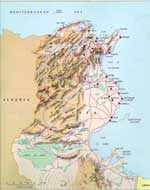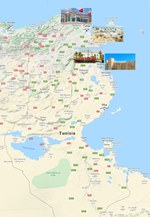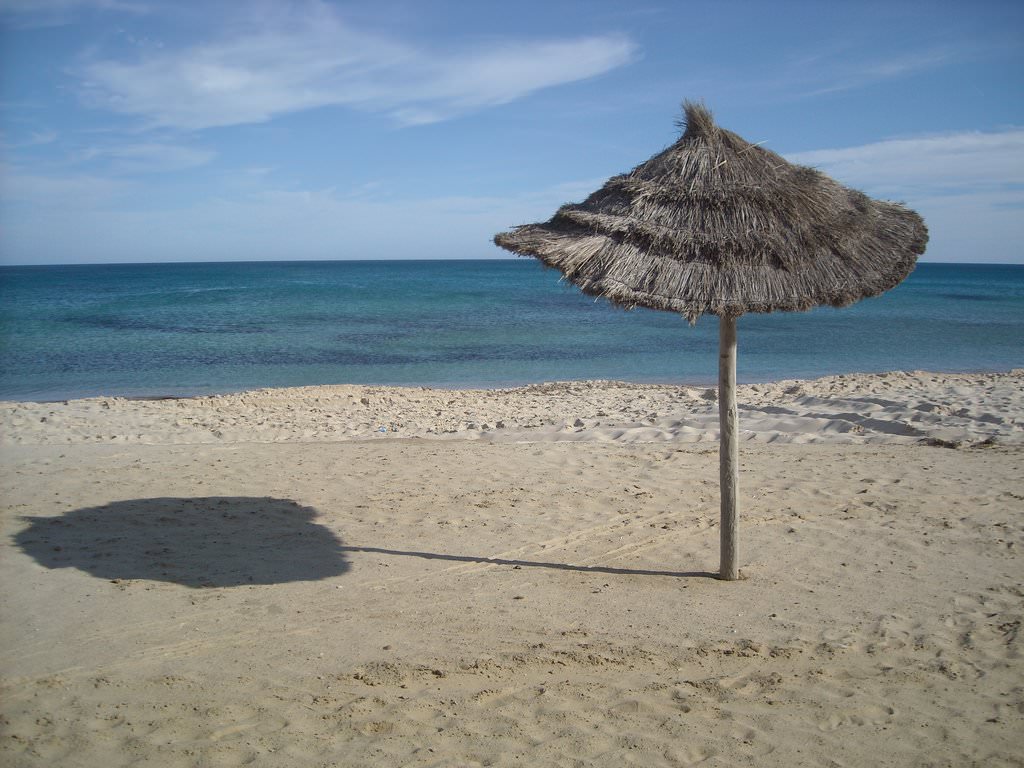Religions and languages in Tunisia
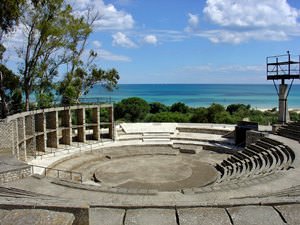 From a linguistic point of view, Tunisia is the most homogeneous and integral country of the modern day Maghreb. Almost all the locals can speak the so-called Tunisian dialect which is of Arabic extraction. Among linguists, it is known as Derja. By its linguistic structure, this dialect some sort of derivative of the classical Arabic language. However, in practice, most words in the dialect are structurally and phonetically unlike classical Arabic. Most likely, this was influenced by the history of the formation of Tunisia as a state and its geographical location. Periodic migration and a change of government within the state also left a mark on the linguistic sphere of Tunisia. To date, you will even find in their dialect borrowed words from French and Italian, German and Spanish, and even some adverbs from Berber.
From a linguistic point of view, Tunisia is the most homogeneous and integral country of the modern day Maghreb. Almost all the locals can speak the so-called Tunisian dialect which is of Arabic extraction. Among linguists, it is known as Derja. By its linguistic structure, this dialect some sort of derivative of the classical Arabic language. However, in practice, most words in the dialect are structurally and phonetically unlike classical Arabic. Most likely, this was influenced by the history of the formation of Tunisia as a state and its geographical location. Periodic migration and a change of government within the state also left a mark on the linguistic sphere of Tunisia. To date, you will even find in their dialect borrowed words from French and Italian, German and Spanish, and even some adverbs from Berber.
These spots really worth the attention of a real traveler-researcher.
…
Read further
Read further
The best way to get acquainted with culture of Tunisia is to make excursions to its largest cities. In every of them travelers will find various …
Read further
Read further
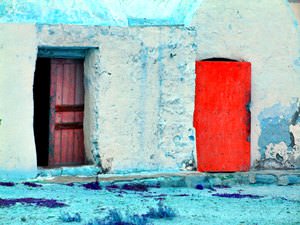 Religious education in the country is at a very high level. From childhood, children are taught to help one’s neighbor, so practically almost every Muslim passing by the poor, seeks to give alms. That aside, thanks to modern Western trends, in the territory of Tunisia there are those who do not want to follow the rules of many generations of their ancestors and wish to simply disregard any religious denominations. It is worth noting that the local population is very demanding regarding the fulfillment of the basic canons of their religion. It is for this reason that tourist while staying in a Muslim country, are recommended to observe some rules adopted in this religious direction. For example, women should not wear revealing outfits. The shoulder or cleavage zones should likewise not be exposed.
Religious education in the country is at a very high level. From childhood, children are taught to help one’s neighbor, so practically almost every Muslim passing by the poor, seeks to give alms. That aside, thanks to modern Western trends, in the territory of Tunisia there are those who do not want to follow the rules of many generations of their ancestors and wish to simply disregard any religious denominations. It is worth noting that the local population is very demanding regarding the fulfillment of the basic canons of their religion. It is for this reason that tourist while staying in a Muslim country, are recommended to observe some rules adopted in this religious direction. For example, women should not wear revealing outfits. The shoulder or cleavage zones should likewise not be exposed.
Tunisia is dominated by a subtropical climate. The Mediterranean Sea is the main influence on the formation of weather conditions. Summer in the …
Read further
Read further
This article about religions and languages in Tunisia is protected by the copyright law. You can re-use the content, but only under the condition of placement of an active link to www.orangesmile.com.
Thailand Relaxes Its COVID-19 Policy
New Year events in Thailand are likely to bring more people this year because everyone is tired of lockdowns and craving normal life. Many tourists, who book hotels in Pattaya, Krabi, or Phuket for the holiday season, also want to participate. As champagne has become an essential drink for New Year celebrations, the question regarding alcohol consumption comes to mind. The government allowed serving alcoholic drinks during the New Year countdown but only open-air cafes and restaurants with good ventilation will be permitted to do this until 1 am on 1 January 2022. This rule is nationwide. Read this
Read this
28.04.2024
New Year events in Thailand are likely to bring more people this year because everyone is tired of lockdowns and craving normal life. Many tourists, who book hotels in Pattaya, Krabi, or Phuket for the holiday season, also want to participate. As champagne has become an essential drink for New Year celebrations, the question regarding alcohol consumption comes to mind. The government allowed serving alcoholic drinks during the New Year countdown but only open-air cafes and restaurants with good ventilation will be permitted to do this until 1 am on 1 January 2022. This rule is nationwide.
28.04.2024
Photogallery of iconic places of Tunisia
Traditions in Tunisia cities
Foreign guests can feel relatively calm in Hammamet; urban residents have long been accustomed to a large number of tourists and perceive features of other cultures with understanding. Anyway, you have to consider the outfit carefully, if you hope to visit religious sites and explore suburbs of Hammamet. It is inexcusable to go on a tour around religious sites in low-necked and provocative clothes. As for locals, they have their own unique clothing style. During a walk through residential … Read more 
For many travelers the first association with cultural traditions of indigenous people is hammam. A visit to it has long been a tradition not only for locals, but also for tourists. The hammam is often located near the mosque. Modern saunas are multi-purpose sports complexes, as they offer customers high quality massages and beauty treatments. Many interesting traditions are associated with hammam. For example, men can visit the hammam from dawn until noon, and women have access to the hammam … Read more 
The prayer ritual is observed by citizens several times a day at a certain time, and it can be done even on the street. If, during your walk, you see a person kneeling, you should walk around them well at a distance. It’s not polite to stare at those praying. Local women’s everyday clothing is burqa. It’s also impolite to stare at local citizens in traditional clothing. There are also special rules of conduct in public places: you shouldn’t speak and express your emotions too … Read more 
In order not to get in trouble with the law, you should abstain from drinking wine, beer, etc. from the bottle right on the streets. Drinking alcohol outside the designated places is forbidden here. Besides, you have to remember that there is the month called Ramadan in the Muslin calendar during which religious observe a strict fast. Though nobody would deny serving you in bars or restaurants in this period, offer locals to have a bite or a drink with is totally rude. The same is about … Read more 


 English
English Russian
Russian Nederlands
Nederlands Deutsch
Deutsch Español
Español Français
Français Türkçe
Türkçe